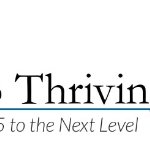Newsletters
Check out our recent newsletters for resources, programming previews, and grant opportunities!
Upcoming Events
Spring 2024 Personnel Portfolio Workshop (April 29 - May 31, 2024)--(Virtual/Online with optional in-person writing days)
April 29, 2024 1:00 PM - 3:00 PM
International Virtual Exchange Learn and Design Workshop | May 1-2, 2024
May 1, 2024 9:30 AM - 3:00 PM
eLearning Technologies Presents: From Surviving to Thriving - Taking Blackboard Ultra and Microsoft 365 to the Next Level
May 13, 2024 10:00 AM - 2:00 PM
Winter 2024 Learning Communities
Learning Communities (LCs) bring faculty and staff together to foster a 1-2 semester-long conversation on a topic of mutual interest and encourage an application of the knowledge gained. Each LC consists of a facilitator and a group of at least four faculty or staff. If you are interested in registering for an LC, simply apply for a Learning Community in the FTLC Grant System. All faculty are eligible to apply, and staff may participate with supervisor approval.
If you are interested in forming or leading a Learning Community for the current or upcoming academic year, complete a Learning Community Letter of Intent Form. If you are leading an LC, visit the LC Facilitator Resources page.
Looking for inspiration? Visit our Past Faculty Learning Communities webpage to see a complete list (with descriptions) of FLCs from past academic years.
Coaching Colleagues, Students and Ourselves—How might we draw on successful coaching strategies in our supervision and mentorship of colleagues and students?
Collaborating for Student Success—How can teaching faculty and support staff work together to build students' confidence and encourage belonging outside the classroom to foster academic success?
Cultivating Resilience and Stamina in the Elementary Classroom—In this post-COVID world, how might we better support elementary teacher interns, both emotionally and academically, building up their professional stamina?
Disability Visibility: The Myth of Normal—How can faculty come together to recognize ableism, the myth of normal, and the voices of the disabled so they can best support students' learning around disability? (Open to CECI faculty only)
Engineering Pedagogy—How might understanding the way we process information and make decisions help inform teaching and learning in engineering? (open to Engineering Faculty Only)
Facilitating Student Learning in Biomedical Sciences—What Strategies can we incorporate into out biomedical sciences courses to help students reflect on their learning, apply strong study skills and increase motivation? (Open to BMS faculty only).
Generative AI and the Humanities—How might we make responsible and pedagogically-sound use of generative AI in our classrooms?
International Virtual Exchange: Introduction, Ideas, and Implementation—How might we incorporate virtual exchange projects in our courses to promote intercultural dialogue and foster collaboration and global awareness in our students?
Internships: Approaches, Strategies, and Best Practices—How can we help students get the most out of their internship?
Psychology DEI-AB—What resources (books, podcasts, articles) and research-informed methods might help faculty in the Psychology Department facilitate equity and belonging among students, faculty, and staff from marginalized communities? (Open to PSY faculty only.)
Small Teaching—What can we learn and apply from Lang’s classic?
Teaching Trauma-Sensitive Mindfulness—What are the considerations to keep in mind to ensure that mindfulness practices are beneficial for students?
Ungrading II—Can rethinking assessment help students learn more?
We Were Made for These Times—What are the best ways to face all the changes that confront us, including those we initiated on our own?
The Robert and Mary Pew Faculty Teaching and Learning Center serves as a catalyst for promoting a culture of teaching excellence at Grand Valley State University. Rooted in a liberal education tradition and informed by the scholarship of teaching and learning, we advocate innovative teaching and student-centered pedagogies. We partner with faculty as they prepare students to contribute meaningfully to their professions and societies.



